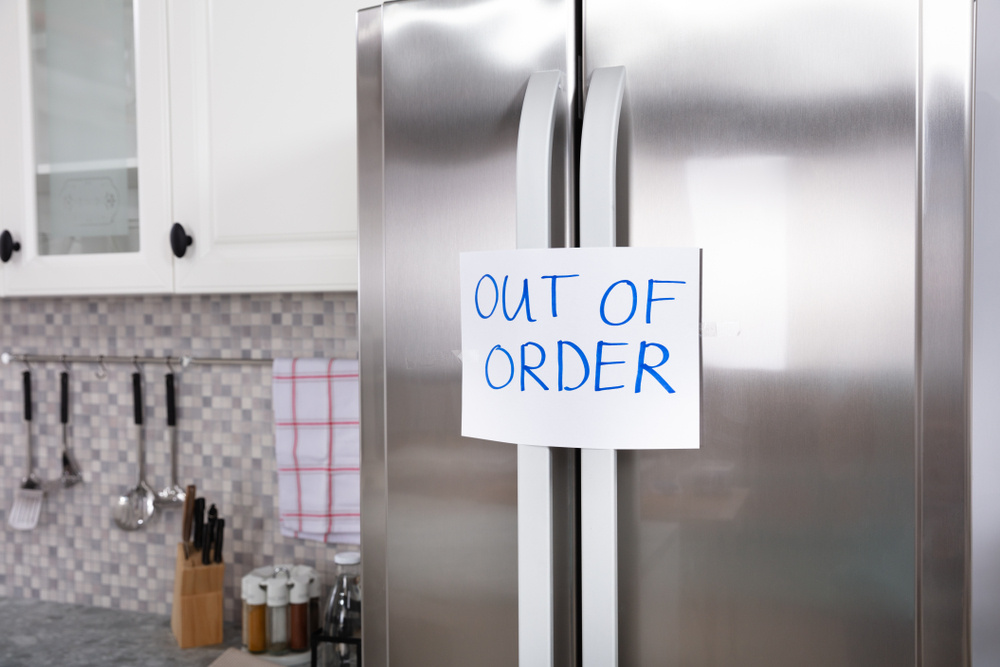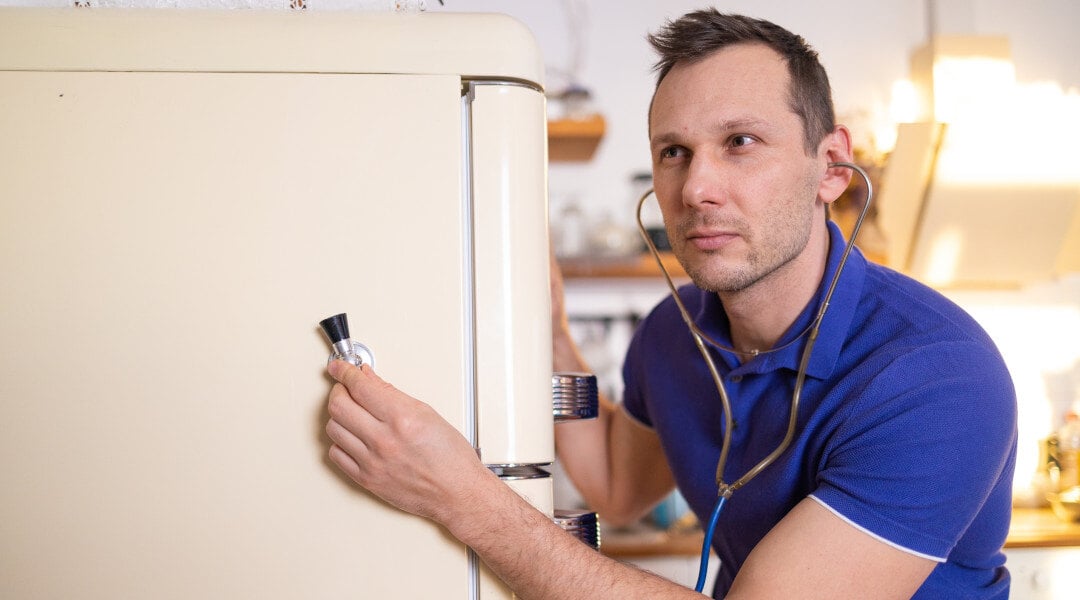Repairing your washing machine yourself can save both time and money, but safety should always be your first priority. While incidents related to washing machines have decreased by 10% in recent years, it’s important to follow the right precautions to ensure a safe repair process. Here’s a guide on how to stay safe, spot common issues, and know when to call in professionals.
Sign up for our Blog!
Essential Safety Precautions
Before beginning any repair work, the most critical step is to unplug the washing machine to disconnect the power. This prevents the risk of electric shocks, a common concern during appliance repairs. To double-check that no power is running, use a voltage tester.
Next, make sure to wear protective clothing. Gloves will protect your hands from sharp edges and moving parts, while safety goggles safeguard your eyes from debris or dust. Additionally, wearing sturdy footwear, such as steel-toed boots, can protect you from falling tools or other heavy objects. Taking these basic steps significantly reduces the risk of injury.
Always consult the washing machine’s user manual before starting repairs. Each model is different, and knowing your machine's specifications can help avoid damage and ensure a safer repair process.
Assessing the Situation
Before jumping into repairs, take a moment to evaluate the issue. Begin by checking the machine’s connection to power. Confirm that it’s plugged in and ensure the circuit breaker hasn’t tripped. A simple issue, like a loose plug, might be the culprit and is easily fixable.
Next, inspect the water supply. Make sure the water valves are fully open and that there is adequate pressure. A poor water supply might be mistaken for a machine failure, but in many cases, it’s just a simple fix.
Common Hazards to Watch Out For
.jpg?width=330&height=220&name=th%20(13).jpg)
Awareness of common hazards can help prevent accidents. For instance, a clogged drain hose can block the proper flow of water, leading to potential leaks or water damage. Check the hose for any kinks or debris and clear them to restore proper drainage.
Another frequent issue is detergent build-up in the dispenser. Over time, detergent residue can cause blockages, disrupting the washing process. Regular cleaning of the dispenser helps avoid this problem and ensures your machine operates efficiently.
Understanding Common Failure Risks
Understanding the most common causes of washing machine failures can guide your repair efforts and help prevent them. Supply hose failures are responsible for 55% of repair claims. These are usually caused by cracks or leaks, so it’s important to regularly inspect your hoses for signs of wear.
Overflows and backups, which account for 28% of claims, are often due to overloading or clogged filters. By sticking to the recommended load sizes and keeping the filters clean, you can avoid these issues.
Here’s a table summarizing common failure risks:
|
Failure Risk |
Percentage of Claims |
Average Cost per Claim |
Common Causes |
|
Supply Hose Failure |
55% |
$5,308 |
Cracks or leaks |
|
Overflow/Backups |
28% |
$5,308 |
Overloading or clogged filters |
|
Unattended Homes |
6% |
$13,000 |
Accumulated water |
Recommended Safety Equipment
Proper safety equipment is essential for repairing your washing machine. Here's a list of what you’ll need:
|
Safety Equipment |
Purpose |
Recommendation |
|
Gloves |
Protects hands from cuts and abrasions |
Latex or nitrile gloves |
|
Safety Goggles |
Shields eyes from dust and flying debris |
Impact-resistant goggles |
|
Sturdy Footwear |
Prevents injury from falling tools or parts |
Steel-toed boots |
|
Protective Clothing |
Guards against cuts or burns |
Long-sleeved shirts and pants |
Investing in quality safety gear not only minimizes risk but also makes repairs more efficient.
When to Call a Professional
Sometimes, a washing machine issue requires the expertise of a professional. If the problem involves complex electrical work or intricate mechanisms, it’s better to call in an expert. Attempting to repair these issues without the necessary knowledge or tools can lead to further damage or create new safety risks.
If you’re unsure of the repair process or lack experience with these types of repairs, hiring a professional ensures the work is done safely and accurately, without causing additional damage.
Maintaining Your Washing Machine Safely
Preventive maintenance is essential for prolonging the life of your washing machine and avoiding costly repairs. Here are a few simple maintenance tips:
- Inspect hoses regularly for signs of wear or leaks, and replace them if necessary.
- Clean filters to avoid clogs and maintain proper water flow.
- Avoid overloading your machine. Adhering to the manufacturer’s recommended load size helps prevent damage.
- Use the correct detergent and avoid overuse, which can lead to residue build-up and clogged components.
By keeping up with these basic maintenance tasks, you can reduce the likelihood of unexpected breakdowns.
Additional Safety Tips
To further enhance your safety during washing machine repairs, keep the following tips in mind:
- Use Non-Conductive Tools: Opt for tools with plastic or wooden handles to reduce the risk of electrical shock.
- Refer to the User Manual: Always follow the specific instructions for your machine to ensure safe operation.
- Have a First Aid Kit Available: In case of minor injuries, it’s helpful to have a first aid kit on hand.
- Keep a Fire Extinguisher Nearby: Since electrical repairs pose fire risks, always have a fire extinguisher nearby.
- Check Electrical Connections: Loose or corroded connections can cause dangerous short circuits—inspect all electrical parts before proceeding.
- Use a Multimeter: This tool allows you to safely test electrical components for issues.
.jpg?width=330&height=220&name=th%20(14).jpg)
Repairing your washing machine at home is possible and cost-effective, as long as you prioritize safety. Simple steps like disconnecting the power, wearing proper protective gear, and consulting the user manual will make the process much safer. By identifying common hazards and understanding potential failure points, you can handle minor repairs confidently.
However, if the repair seems complex or outside your skill set, don’t hesitate to call a professional. This ensures the repair is done correctly and minimizes the risk of further damage.
Maintaining your washing machine through regular checks and basic upkeep will help keep it running smoothly for years to come.
Benefits of Working with FixHomz
If your washing machine repair requires more than DIY, FixHomz offers professional solutions backed by decades of expertise. Here's what sets us apart:
- Industry Expertise: With 25 years of experience, we guarantee high-quality repairs and warranty services.
- Customer Service Excellence: Our team is dedicated to providing top-tier service and satisfaction.
- Innovative Programs: We offer customizable coverage, fixed deductibles, and tailored solutions to meet your needs.
- Comprehensive Service Options: From appliance repairs to electronics installations, we handle it all, no matter your warranty status.
- Specialized Solutions: We collaborate with builders, real estate agents, and retailers to enhance customer satisfaction.
- Long-Term Value: Our services don’t just fix problems—they build brand loyalty and improve profitability.
Final Thoughts
When it comes to maintaining your home, having a reliable partner can make all the difference. Whether you're dealing with routine maintenance tasks, unexpected repairs, or complex projects, FixHomz stands ready to provide professional, comprehensive solutions tailored to your needs.
Our team of experts is committed to delivering high-quality service that ensures your home’s systems remain efficient, safe, and problem-free. With FixHomz, you can trust that every issue, big or small, will be addressed with care and expertise.
Don’t wait for problems to escalate—reach out to us today through our contact page. Let us help you protect your investment and enjoy peace of mind knowing your home is in capable hands.
Choose FixHomz for reliable service, unmatched expertise, and a dedication to making your home the sanctuary it’s meant to be.


.jpg)


.jpg)



.jpg)

